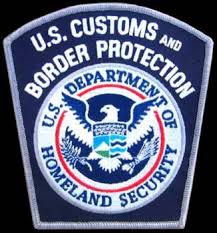 CBP Found Substantial Evidence of Evading the Antidumping Duty Order
CBP Found Substantial Evidence of Evading the Antidumping Duty Order
In a final determination under the Enforce and Protect Act, U.S. Customs and Border Protection (CBP) has found substantial evidence that a U.S. company, American Pacific Rubber, Inc., evaded the antidumping duty order on oil country tubular goods from Vietnam. CBP found that OCTG pup joints imported from Vietnam were steel OCTG tubing that was misidentified as upper extension nipples, misclassified and entered into the U.S. customs territory without the cash deposits prescribed under the AD order on OCTG from Vietnam.
As a result of this final determination, CBP will continue to
- Suspend liquidation for any entry of subject goods entered on or after July 18, 2017
- Extend the period for liquidation of all unliquidated entries entered before that date
- Require live entry, which requires the importer to post the applicable cash deposit rate (currently 111.47 percent) prior to entry release
- Evaluate the continuous bonds of the importer
CBP also said it could pursue additional enforcement actions or penalties as appropriate.
CBP has broad authority to conduct investigations of these claims and can impose initial remedial measures that could interrupt a supply chain in as little as 90 days.
What are Anti-dumping (AD) & Countervailing (CVD) duties?
Anti-dumping (AD) occurs when a foreign manufacturer sell goods in the United States less than fair value, causing injury to the U.S. industry. AD cases are company specific; the duty is calculated to bridge the gap back to a fair market value.
Countervailing duties (CVD) cases are established when a foreign government provides assistance and subsidies, such as tax breaks to manufacturers that export goods to the U.S., enabling the manufacturers to sale the goods cheaper than domestic manufacturers. CVD cases are country specific, and the duties are calculated to duplicate the value of the subsidy.
Leave a Reply